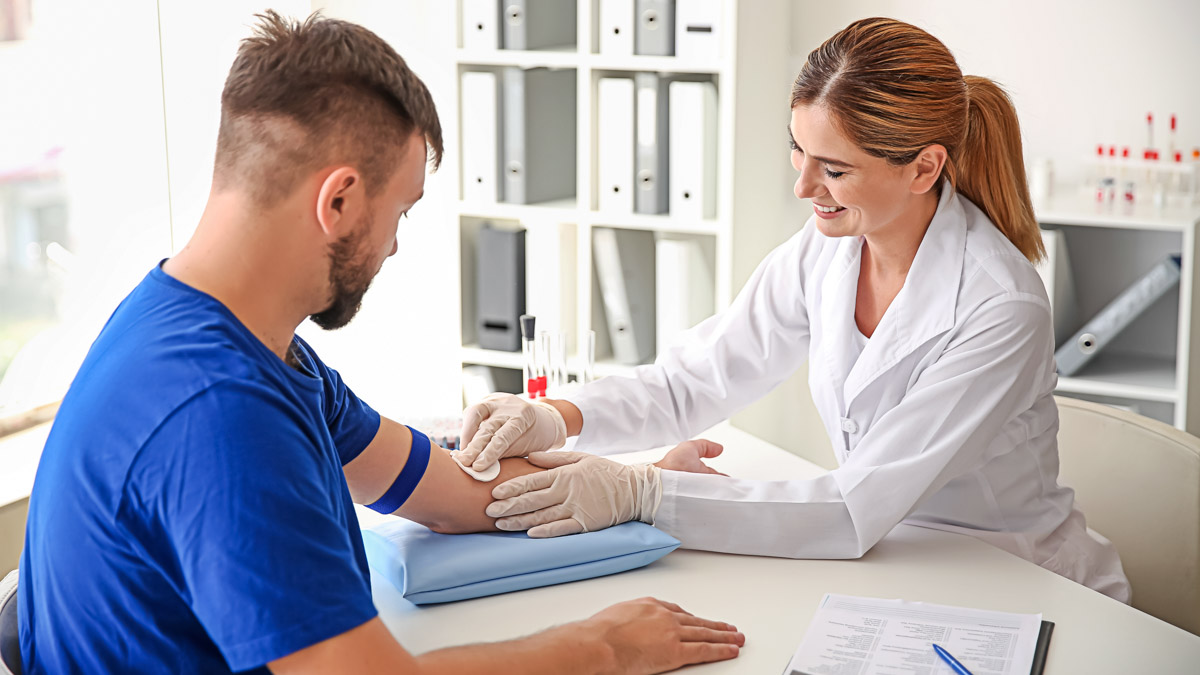A good habit every athlete should adopt is getting regular blood tests, especially at the end of a big training cycle and before you start a new one. A comprehensive blood test provides physiological parameters that give insight into your training and lifestyle.
Whether you’re coming off a period of heavy training or spent time a decent amount of time off, a blood test gives you valuable information as you plan your next training block.
Why You Should Get Your Blood Tested
Getting your results is one thing. Understanding what they mean is another.
For example, understanding your baseline hormone levels and getting them checked can provide valuable information about your training and overall health. Nickola Keay, an endocrinologist specializing in dance and endurance sports (as well as chief medical officer for Forth Edge in the UK), says, “Hormones drive adaptations to exercise training, but also haematinics [the nutrients required to produce red blood cells], and vitamin D, particularly in the winter.” (To understand what makes vitamin D so important, check out this article: The Importance of Vitamin D in Athletes.)
Keay also says that athletes should get blood tests done “to check in on if their endurance training, nutrition, and recovery are supporting positive adaptive changes, or not!” She adds that blood tests tell us how our bodies are responding to external factors of training load, nutrition, and recovery.
Keay suggests testing three to four times during the season and at critical points like preseason, at the end of the winter training block, in the pre-race season, and at the end of a race season.
In her experience, most of the issues endurance athletes face are due to “low energy availability and potential adverse consequences of relative energy deficiency in sports (REDs).” She says a blood test can pinpoint deficiencies in advance to limit the negative consequences in the long term and support the demands of training and racing.
Types of Blood Tests
You no longer need to go to a lab or to a doctor to get a blood test. Several companies have now set up at-home testing through a simple finger prick. Purchase the kit online, and a box gets delivered to your door with everything you need. Perform the test early in the morning (fasted blood tests provide the best results), seal it up, and send it back. You usually get the results in one to two days via email, an app, and/or an online profile.
Of course, if you prefer to get your blood taken by professionals, that may still be the most accurate and quick way to get results. (It once took me three times to have full test results from at-home kits, but that might be due to the provider’s guidelines and some blood clotting issues. I was also likely dehydrated.)
Over the years, I have tried almost all the providers in the UK that advertise at-home kits to endurance athletes: Forth Edge, Thriva, and Medichecks. There are other alternatives in the US, including Everlywell and InsideTracker.
Blood Biomarkers & What They Mean
Here is a list of biomarkers I regularly have checked. Although the blood test providers will indicate how your test compares to the average levels, I highly recommend running your results by a professional as well. For example, one of my hormone levels was slightly high, but I consulted a professional who told me that since my other significant parameters were average, that single high digit was not a concern.
Do not fall into the trap of seeing a red light and thinking everything is terrible! Speak to a professional specialized in endurance sports (most of the providers mentioned before offer this kind of support, too).
- Hematocrit: This is the volume percentage of red blood cells in your blood.
- Hemoglobin: The red protein responsible for transporting oxygen in the blood
- Red blood cells: Necessary oxygen transporters. They take it from the lungs to the cells around the body.
- White blood cells: the number of white blood cells per volume of blood. White blood cells make up your immune system and help protect your body against illness and disease.
- Mean cell hemoglobin: the amount of hemoglobin inside the red blood cells.
- Mean corpuscular hemoglobin concentration: concentration of hemoglobin inside the red blood cells.
- Mean corpuscular volume: the average size of your red blood cells.
- Mean platelet volume: the average size of blood platelets (corpuscules that play an essential role in clotting.)
- Red blood cells distribution width: measurement of the variation of the size of your red blood cells.
- Cortisol: steroid hormone that is released when the body is under stress. Anxiety, a restricted diet, or over-training can all cause cortisol levels to rise.
- Follicle-stimulating hormone: regulates the functions of the reproductive system.
- Luteinizing hormone: plays a vital role in the human reproductive system.
- Prolactin: a hormone produced by the pituitary gland. Slight increases can occur as part of a stress reaction.
- Testosterone: a hormone that affects the brain, bone and muscle mass, fat distribution, the vascular system, energy levels, sexual functioning, and fertility.
- Thyroid stimulated hormone: plays a vital role in regulating the production of hormones by the thyroid gland.
- Thyroxine (T4): a test used to check that the thyroid is performing correctly.
- A Triiodothyronine (T3): test can indicate if the thyroid is performing correctly.
- Vitamin B12: like folate, it has a vital role in the production of healthy red blood cells and has a function in nerve health.
- Ferritin: the amount of ferritin in the blood reflects the total level of iron stored within your body.
- Vitamin D: plays an essential role in health, including in the development and preservation of healthy bones, boosting our immune system, muscle function and energy levels, and helping to reduce inflammation.









